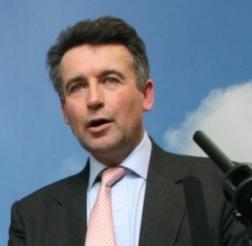The Public Administration Select Committee is to launch an inquiry into the Big Society in an effort to pinpoint how to make it a success.
The inquiry will attempt to “identify actions which the government can take to promote the Big Society” in light of the barrage of criticism that has been levelled at it over the last few weeks.
Bernard Jenkin MP, the chair of PASC, announced the inquiry at the end of a Committee meeting today at which minister for civil society Nick Hurd and economic secretary to the Treasury Justine Greening gave evidence about the government’s plans for the Big Society and future funding for charities and voluntary groups.
Explaining the rationale behind the inquiry, Jenkin (pictured) said: “Everyone seems to agree that empowering communities, opening up public services and encouraging social action are good things, but what does this mean that government and local government should be doing? This is a huge challenge against the background of sharp reductions in state spending and state support for the voluntary sector.
“The Prime Minister’s project has faced a barrage of criticism in recent weeks. We will be looking to separate the inevitable hostility to spending cuts from the positive elements of the Big Society policy.
“We will draw on the public debate and take fresh evidence to try to identify actions which the government can take to promote the Big Society. This is potentially a huge culture change for government and how it goes about the business of government. I don’t believe that the Whitehall machine or the civil service has really started to understand the implications of the change which is required.”
Hostile questioning
Minister for civil society Nick Hurd and economic secretary to the Treasury Justine Greening faced some hostile questioning from the Committee this morning.
Topics included the lack of a level playing field for service delivery charities on VAT, the government’s “powerlessness” in controlling local authorities, and the risk that the Big Society Bank will not get European Commission approval.
But the majority of questions and comments related to the Big Society, with committee members variously describing it as “pious drivel”, “the dismantling of the state” and “just a veneer”.
Labour MP Paul Flynn said: “I’ve been around through six Prime Ministers and they have all had very strange ideas. This Big Society is very reminiscent of John Major’s coal hotline…it can’t be mentioned without sniggering. Is it not time to tell emperor David Cameron that he has no clothes?”
Hurd responded that “public service reform is not a veneer, the Localism Bill is not a veneer and improving transparency is not a veneer”.
Issues to be covered by the inquiry
The Committee will call for evidence on the following issues in particular:
1. A definition of what the ‘Big Society’ is or should be.
2. The impact and consequences of reductions in public expenditure on the Government’s ambitions to deliver its vision for the Big Society.
3. The role of and capacity for the voluntary and community sector to deliver local public services including the appropriateness of using charitable income or volunteer labour to subsidise costs.
4. Possible problems and challenges from increased commissioning of public service provision from the voluntary and community sector as envisaged by the Government.
5. The right to form employee-owned public service co-operatives including the resources available to co-operatives, proposed powers, and rules governing their operation.
6. Governance and accountability issues arising out of different organisational forms of social enterprises and co-operatives; and the participation of voluntary sector and community groups in greater public service provision.
7. The implications for central government and for the civil service of policies which require them to promote and to enable, rather than to manage and to direct, public services.
8. The place of local authorities in the transfer of power from Whitehall to communities and the role democratically elected local councillors should play.
9. Potential conflicts with other aspects of public service delivery, such as individual focus of personalised public services or universal provision and uniform standards of public services (ie avoiding postcode lotteries).
The Committee has published a paper outlining the key questions that those wishing to submit evidence to the inquiry are invited to consider. Responses should be submitted by Friday 18 March 2011 by email to
[email protected]









